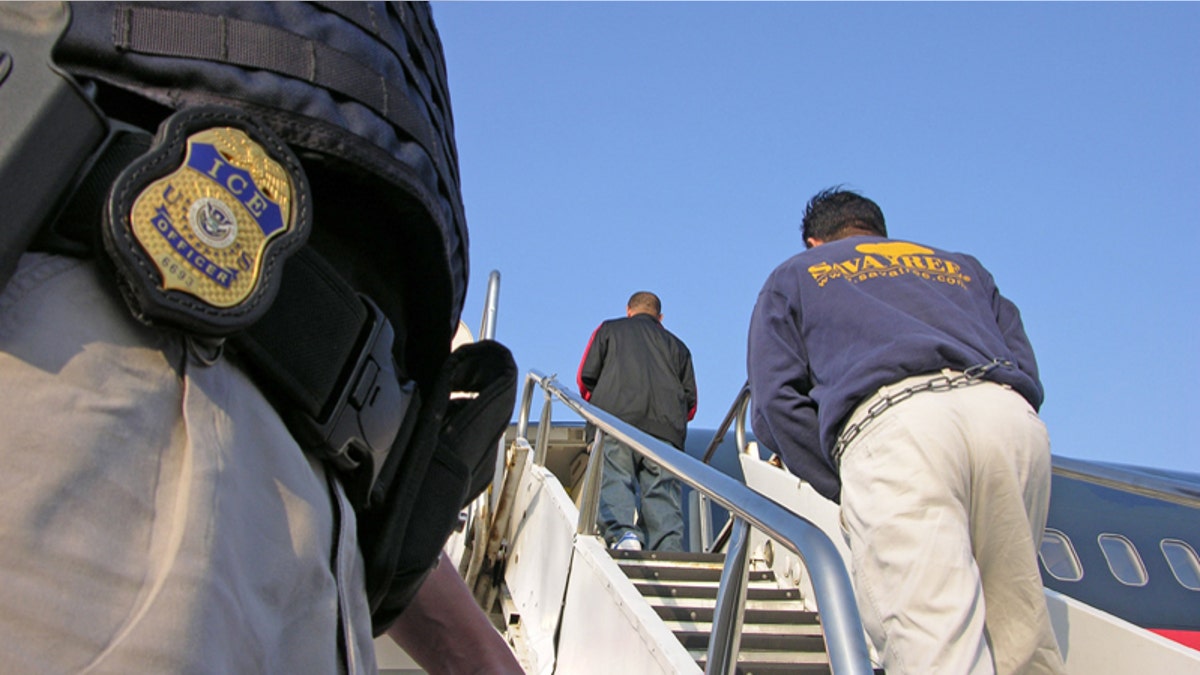
(Courtesy of ICE)
Less than 14 percent of deportation proceedings started in the summer months involved people who had criminal charges, according to a new report.
That marks a stark contradiction to the assertions of the Obama administration about how it has shifted the focus of enforcement and deportation to target the most dangerous immigrants – namely those who have committed serious crimes or who been linked to terrorism, the report authors said.
The deportation analysis, conducted by the Transactional Records Access Clearinghouse, or TRAC, at Syracuse University, showed that of the deportation proceedings that took place between July and September at the nation’s more than 50 immigration courts, 13.8 percent involved people with criminal charges. That was a drop from the previous year, when 16.5 percent had criminal charges, according to the TRAC report.
TRAC authors said that their case-by-case review of records, obtained under the Freedom of Information Act, known as FOIA, showed that in fiscal year 2011 – which runs from October 2010 to September, 2011 – immigration officials initiated deportation proceedings against nearly 189,000 people who were charged with immigration violations.
People with immigration violations, which are civil – not criminal – accounted for slightly more than 83 percent of all deportation proceedings, the report said.
The authors said their findings throw into question the Obama administration’s claims that its record number of deportations – criticized by many Latino groups and organizations that want more lenient immigration policies – was due in large part to a stepped-up focus on criminals.
“TRAC’s findings appear to contrast sharply with the White House announcement...'Under the President’s direction, for the first time ever the Department of Homeland Security has prioritized the removal of people who have been convicted of crimes in the United States,’” the authors said.
“The findings,” they continued, “also are hard to reconcile with [immigration officials’] recent press statements that claimed that during the past year the agency had targeted a large and increasing number of convicted criminals for deportation.”
TRAC’s report showed that of roughly 226,000 deportation proceedings initiated between October 2010 and this past September, immigrants from Mexico accounted for largest single group, with 117,590. Others at the top are Guatemala, which followed by a distant stretch with 17,378, then El Salvador, which followed with 12,862.
The Department of Homeland Security issued a statement refuting TRAC's conclusions.
“TRAC’s report is wildly misleading," said an emailed statement by DHS spokesman Chris Ortman. "The report focuses only on the technical reasons why an individual is legally removable from the U.S. and ignores the criminal history that triggered the decision to seek the person’s removal."
"When removing individuals who have been convicted of a crime and who have no lawful immigration status, like those who illegally cross our border or overstay their visa, ICE is not required to file charging documents in immigration court asserting criminal grounds of removal," the statement said. "In these cases, an individual's criminal history, while relevant to ICE's decision to seek removal, is largely irrelevant to the legal question of whether the person has a right to remain in the U.S.”
Critics have said the administration appears to be inflating the numbers by counting as criminals people who have committed minor offenses and who, unlike its assertions, are not dangerous.
TRAC said in its report that it attempted to clear the discrepancies between its findings and the administration’s, but said that U.S. Immigration and Customs Enforcement, or ICE, was not cooperative.
"There are really an enormous amount of questions about what is actually going on, and it's very discouraging when law enforcement agencies, despite all the talk about transparency, are not providing data that they are collecting – data that everybody really needs to have to decide the very, very complicated policy issues that the country is facing," says Susan Long, director of TRAC, said in published reports.
Follow Elizabeth Llorente on Twitter: @Liz_Llorente
Elizabeth.Llorente@FoxNewsLatino.com
Follow us on twitter.com/foxnewslatino
Like us at facebook.com/foxnewslatino












































